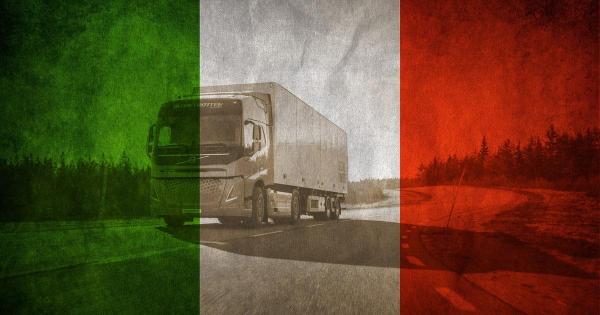A22 Brennero – Additional Saturday Traffic Ban for Trucks from July 5 to August 30

From July 5 to August 30, 2025, an additional traffic ban for heavy goods vehicles with a gross vehicle weight (GVW) over 7.5 tons will be in effect on the A22 Brennero motorway, specifically on the stretch from Vipiteno to the Austrian border. The restriction applies every Saturday from 7:00 a.m. to 10:00 p.m. and affects only northbound traffic (toward Austria).
The decision was signed by the Government Commissioner for the Autonomous Province of Bolzano and aims to reduce congestion at the Austrian border and to better manage traffic during the peak summer holiday transit period. This ban is Italy’s response to restrictions implemented by Austria on the A13 motorway. It complements the national truck driving ban calendar announced by the Italian Ministry of Infrastructure and Transport (MIT) in December 2024, which remains in effect across Italy.
For vehicles already near the border shortly before the ban begins, designated parking areas have been provided:
▪️ SA.DO.BRE parking area in Vipiteno – the main location for stopping and traffic regulation.
▪️ Temporary parking areas, which will be set up by Autobrennero in cooperation with the traffic police or adapted depending on current needs.
The following vehicles are exempt from the ban:
✅ Vehicles used exclusively for the transport of:
– slaughter animals,
– postal deliveries and periodical publications,
– beverages to tourist areas,
– fuel to petrol stations and catering establishments,
– event logistics,
– repair of refrigeration systems (if postponement is not possible),
– towing services, roadside assistance,
– emergency and disaster relief,
– medical aid,
– road maintenance or traffic management on behalf of road authorities,
– road and railway construction,
– public service operations,
– fire brigades,
– waste collection and disposal,
– sewage treatment plant services,
– public transport operators performing scheduled services.
✅ Trips related to:
◾ circuses and other mobile shows,
◾ lighting technicians and public communications professionals – to and from the job site,
◾ non-deferrable trips performed by trucks, tractor-trailer units, or vehicles with trailers belonging to the armed forces,
◾ journeys operated by recognized humanitarian organizations.
✅ Transport as part of combined road-rail freight transport from the point of dispatch to the nearest technically suitable loading station, or from the nearest unloading station to the final destination, and the return journey.
The condition is that the vehicle or its body (e.g., container, swap body) has been or will be transported by rail, which must be evidenced by a properly filled-in transport document. These rules apply analogously to combined road–sea or road–inland waterway transport.
✅ Trips made solely for the transport of goods to or from civil and military airports used for civil aviation purposes.
✅ Trips made solely for the transport of:
– fresh fruits and vegetables,
– fresh milk and dairy products,
– fresh meat and meat products,
– fresh fish and fish products,
– live fish,
– eggs,
– fresh mushrooms,
– fresh baked goods and confectionery,
– fresh herbs (cut or potted),
– ready-to-eat food products.
The exemption also applies to empty runs or return trips connected with the transport of packaging or auxiliary materials for the above product groups.
❗During transport, drivers must carry a consignment note or a delivery list indicating individual unloading points, which must be presented upon inspection. The load status (quantity) must be verifiable both at the start and during transport.







